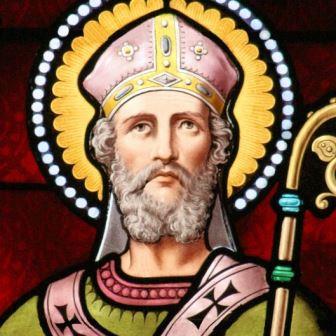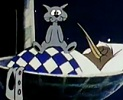
Archbishop of Canterbury
Teacher of the Faith
Anselm entered a monastic school in Normandy. In 1060, influenced by Lanfranc, prior of the abbey of Bec, Anselm took monastic vows. Anselm was by nature a scholar and a monk, devoted to prayer. He is best remembered for his theological work. He made a significant contribution to theology through his development of the so-called “ontological argument” for the existence of God: “God is that than which nothing greater can be conceived.” A thing existing in reality is greater than that same thing conceived of only in the mind; therefore God must truly exist.
When Lanfranc was elected Archbishop of Canterbury, he became prior of the abbey and in 1078 became the abbot of the monastery.
On a visit to England he renewed his acquaintance with Lanfranc. On Lanfranc’s death in 1089, Anselm was proposed to succeed him, but King William II would not at first consent. Anselm is also remembered for his insistence on the spiritual authority of the church over the crown. He had strife first with King William II and then with Henry I over the issue. Not only did it take until 1093 before he was consecrated Archbishop of Canterbury, but he spent much of his episcopate in exile from England. Anselm still succeeded in initiating far-reaching reforms in the church in England.
Anselm in his most famous work, Cur Deus homo (Why God became human), gave classic expression to the “satisfaction theory” of Christ’s work. He explains it in terms of feudal society: when a vassal breaks his bond with his lord, satisfaction must be made. In our relation to God, we cannot make satisfaction because of our sinfulness, therefore God, in human perfection in Christ, offered satisfaction for our sin.
Behind Anselm’s scholarly theology lay a profound piety. He was less interested in “proving” God’s existence or explaining Christ’s work than in helping Christians give a coherent account of the faith by which they live. Faith and prayer always came first.
BORN: 1033, Aosta, Italy
DIED: 1109, 21 April 1109, Canterbury, England.
 Welcome
Welcome Calendar
Calendar Today's Word
Today's Word Lauds
Lauds Terce
Terce Sext
Sext None
None Vespers
Vespers Compline
Compline Matins
Matins